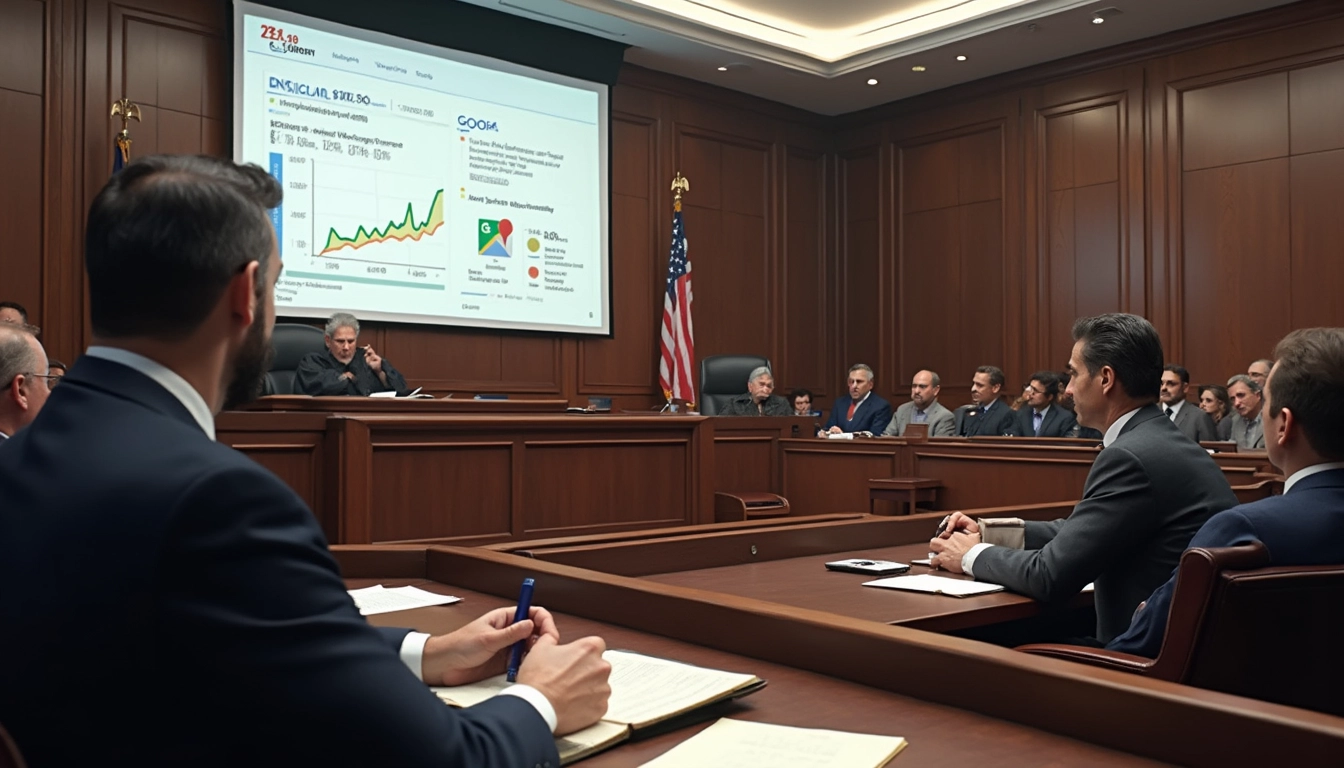
Google Breakup: US Government Seeks to Dismantle Tech Giant’s Search Empire
The U.S. government’s call for the breakup of Google marks a significant escalation in its antitrust battle against the tech giant. This move, targeting Google’s search monopoly and its powerful subsidiaries Chrome and Android, could reshape the digital landscape and set a precedent for future actions against big tech companies.
Table of Contents
Key Takeaways:
- The Justice Department is seeking a court order to force Google to sell Chrome and potentially Android
- Google currently handles about 90% of global web searches
- Chrome holds 67% of the browser market, while Android operates on 71% of smartphones
- The proposed remedies aim to level the playing field in the search engine market
- If ordered, Google would be the first major tech company broken up under federal antitrust law since AT&T in 1982
Google’s Search Monopoly Under Scrutiny
The U.S. Justice Department has taken a bold step in its antitrust case against Google by requesting a federal judge to order the tech giant to sell its Chrome browser and potentially its Android operating system. This move is part of a broader effort to address Google’s alleged illegal search monopoly, which has come under intense scrutiny in recent years.
In August, Judge Amit Mehta ruled Google as a monopolist, setting the stage for this latest development. With Google handling approximately 90% of the world’s web searches, the company’s dominance in the search market is undeniable. The government argues that this level of control stifles competition and innovation in the digital space.
Chrome and Android: Pillars of Google’s Dominance
At the heart of Google’s search empire lie two key assets: the Chrome browser and the Android operating system. Chrome holds a commanding 67% share of the global browser market, while Android powers about 71% of the world’s smartphones. These platforms serve as critical gateways for Google’s search engine, which is set as the default on both.

The Justice Department contends that Google’s success is largely due to “ill-gotten gains of an advantage illegally acquired.” This perspective forms the basis for the proposed breakup, which aims to level the playing field and foster greater competition in the search engine market.
Proposed Remedies to Curb Google’s Dominance
The government’s proposed remedies are far-reaching and could have significant implications for Google’s business model. These include:
- Forced sale of Chrome and potentially Android
- A ban on Google favoring its services on Android
- Ending multibillion-dollar deals that make Google the default search engine on other platforms
If implemented, these measures could be “among the worst possible outcomes for Google,” potentially reshaping the company’s role in the tech industry. The impact on Google’s market position and revenue streams could be substantial, forcing the company to adapt to a new competitive landscape.
Historical Context and Precedents
The potential breakup of Google draws comparisons to historical antitrust actions. If ordered, Google would become the first major tech company to be broken up under federal antitrust law since AT&T in 1982. This case also echoes the Microsoft antitrust battle of the late 1990s and early 2000s, although the order to break up Microsoft was ultimately overturned on appeal.
The uncertainty surrounding Judge Mehta’s decision adds an element of suspense to the proceedings. While the judge has already ruled Google a monopolist, it remains to be seen whether he will embrace the DOJ’s breakup proposal or opt for less drastic measures.
Next Steps in the Antitrust Battle
The antitrust case against Google is far from over. Here’s what to expect in the coming months:
- Google has one month to respond with its own proposal
- Judge Mehta will hold hearings on Google’s punishment starting in April
- A final decision is expected in August
- Potential delays due to likely Google appeal and the incoming administration’s antitrust team
As the case progresses, it’s clear that the outcome could have far-reaching implications for the tech industry and consumers alike. The potential reshaping of the digital landscape if a breakup occurs could lead to significant changes in user experience and market competition.
Implications for the Tech Industry and Consumers
The Google antitrust case serves as a watershed moment for the tech industry. A breakup of Google could set a precedent for future antitrust actions against other big tech companies, potentially leading to a more competitive and diverse digital ecosystem.
For consumers, the outcome of this case could mean changes in how they interact with search engines, browsers, and mobile operating systems. While increased competition could lead to more innovation and better services, it may also disrupt the seamless integration that many users have come to expect from Google’s ecosystem.
As the antitrust battle unfolds, it’s clear that the tech industry is entering a new era of regulatory scrutiny. The Google case may well be a turning point in how governments approach the monopolistic tendencies of big tech companies, with potential ripple effects across the entire digital landscape.
Sources:
The Week
ABS-CBN News
CBS 19 News



One thought on “Google Breakup: US Government Seeks to Dismantle Tech Giant’s Search Empire”